A cercaria, larva of the liver fluke (Fasciola hepatica), a parasitic flatworm. Cercariae are free-living larvae which emerge from the liver fluke's intermediate host, certain species of freshwater snail. The larvae form cysts on nearby vegetation, which are ingested by ruminants, or sometimes by humans. Immature flukes emerge from the cysts and migrate into the bile ducts where they mature and pass eggs into the host's faeces. The eggs can contaminate water and hatch into larvae which infect snails, thus continuing the fluke's life cycle. Liver flukes cause fascioliasis, a liver disease with symptoms including digestive problems, fever, pain, anaemia and jaundice. Footage filmed at Ridgeway Research, Gloucestershire, United Kingdom.
Details
WebID:
C01842043
Clip Type:
RM
Super High Res Size:
1280X720
Duration:
00:00:26.000
Format:
QuickTime
Bit Rate:
25 fps
Available:
download
Comp:
200X112 (0.00 M)
Model Release:
NO
Property Release
No

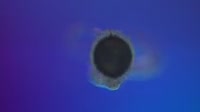
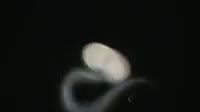


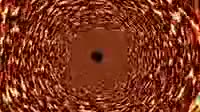
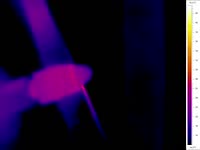
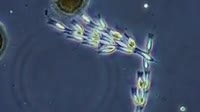
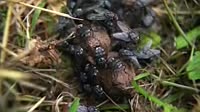


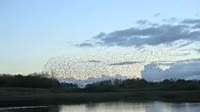
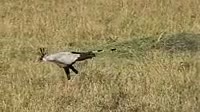
 Loading
Loading